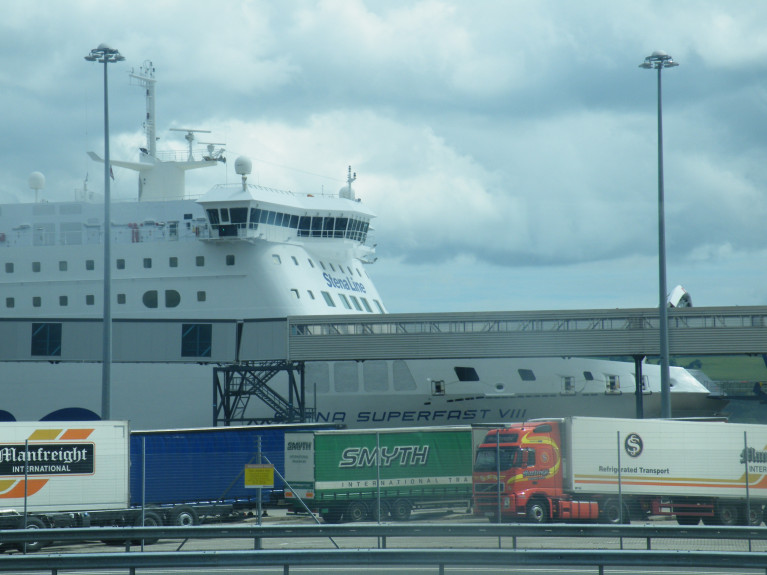Portrush RNLI’s lifeboat volunteers dashed out of a book launch to a very different kind of launch yesterday afternoon (Saturday 23 October) following reports of two paddle boarders in difficulty some 600 metres off Portstewart Strand on Northern Ireland’s Causeway Coast.
Launching at 2.32pm on request of Belfast Coastguard, the inshore lifeboat arrived on scene 12 minutes later amid choppy seas and squally showers with a southerly wind.
The volunteer crew quickly located the two paddle boarders on one board, and were able to get both safely back to shore, where they were handed into the care of the local coastguard team.
At the time the pagers were activated, the crew had been supporting their lifeboat medical officer Dr Martin O’Kane at the launch of his book Dee the Little Lifeboat.
 Alice Rohdich and Martin O’Kane with their book Dee the Little Lifeboat | Credit: RNLI/Judy Nelson
Alice Rohdich and Martin O’Kane with their book Dee the Little Lifeboat | Credit: RNLI/Judy Nelson
Dr O’Kane wrote the children’s book as a fundraiser for the station and is illustrated by local artist Alice Rohdich, wife of former lifeboat crew member Damian Rohdich.
The assembled guests including local MLAs, councillors, journalists and friends were treated the sound of several pagers being activated and a scramble of yellow-clad volunteer lifeboat crew running out the door towards the lifeboat house in very dramatic start to a wonderful book launch.
Portrush RNLI press officer Judy Nelson said: “I could not have timed this shout any better if I had tried. This certainly showed people how quickly the crew respond to the pager and to see them all running for the door certainly added to the drama.
“It certainly helped to reinforce how important our fundraising events are — to support our volunteer crew to save all lives at sea.”































































